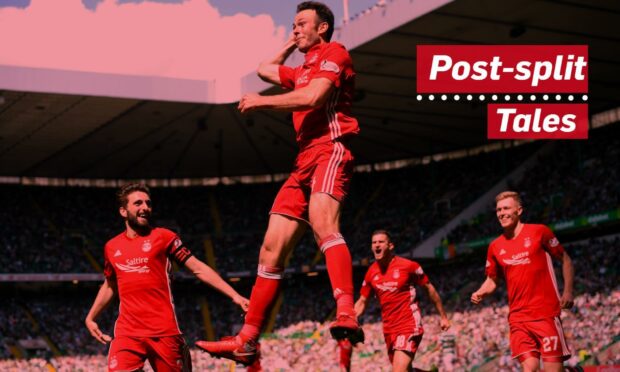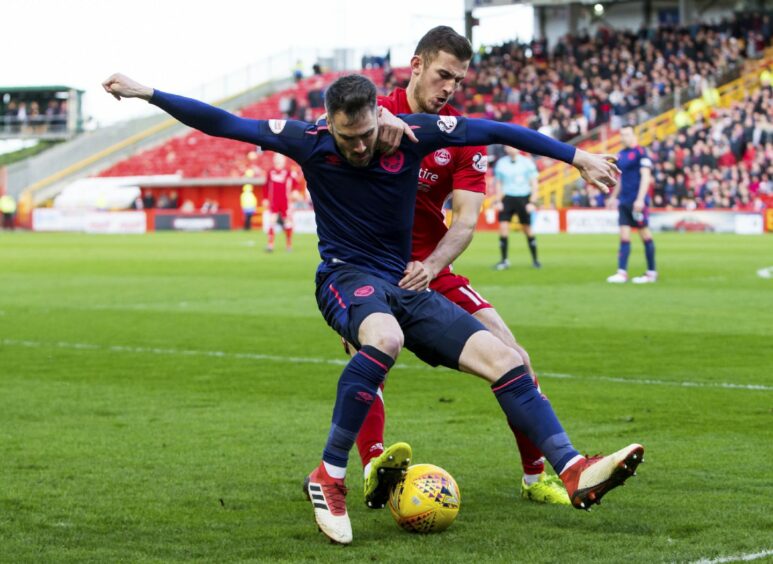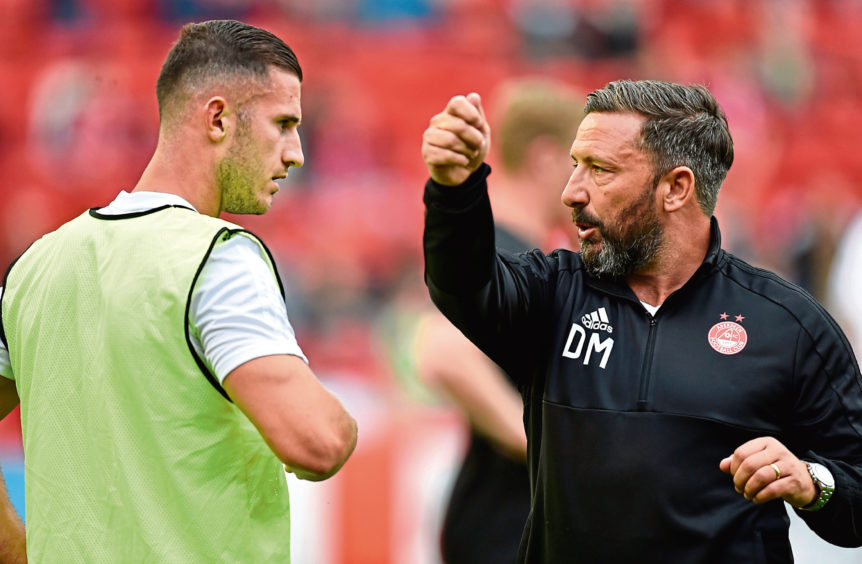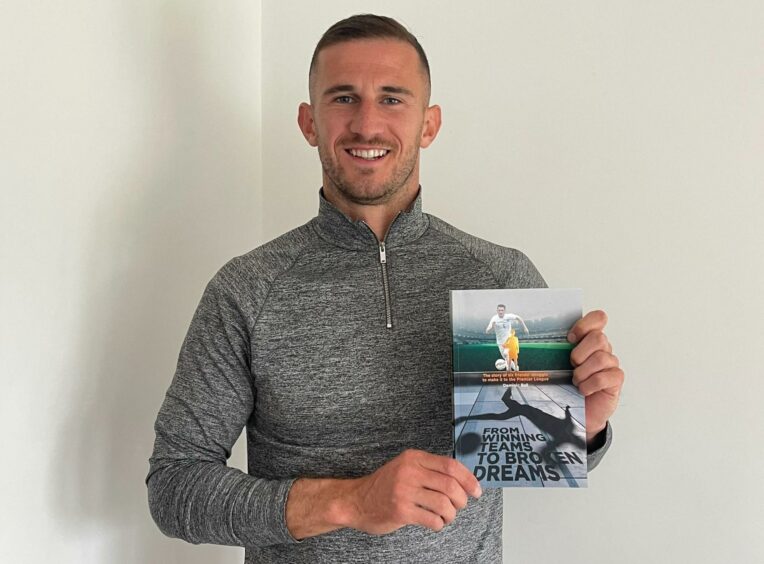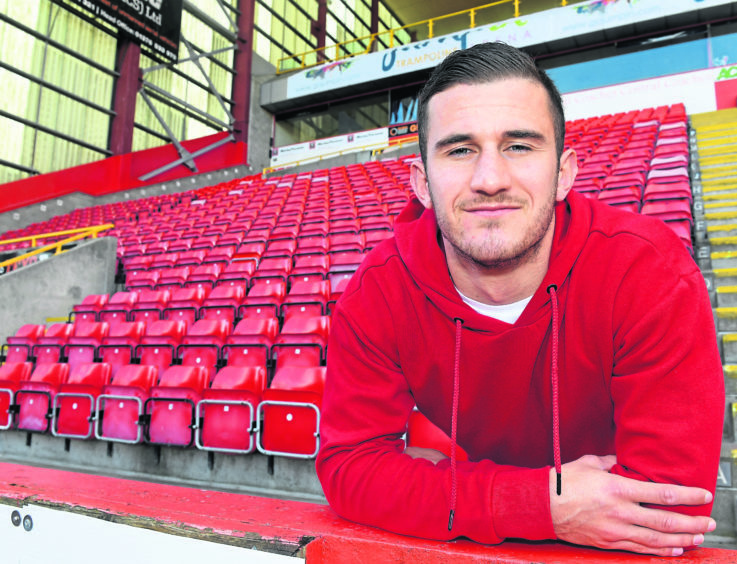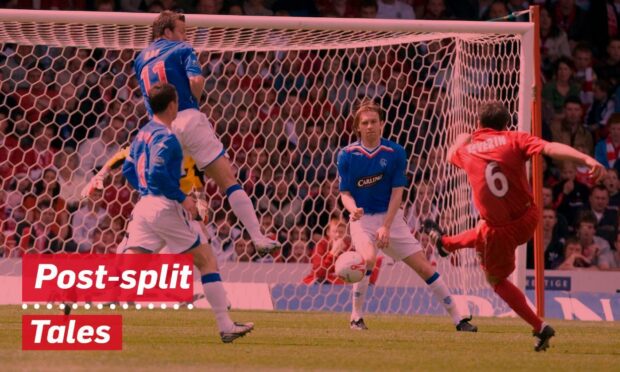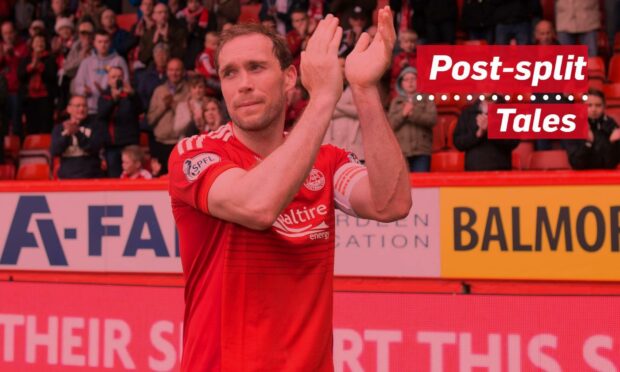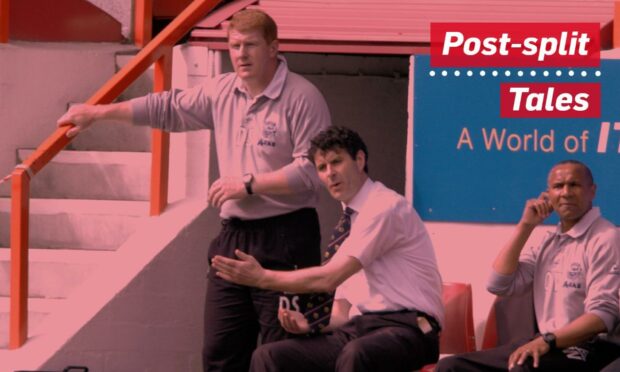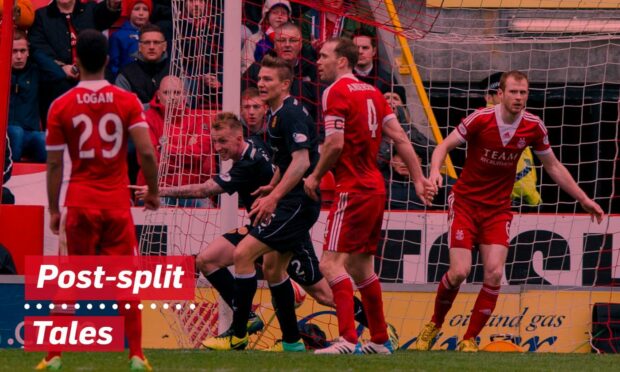Dominic Ball believes his time with Aberdeen helped instil a winning mentality in him.
The utility player was part of Derek McInnes’ side as they became the first Scottish team to beat Brendan Rodgers’ Celtic side on their own patch, with the victory coming on the final day of the 2017-18 season.
Andy Considine’s goal gave the Dons a 1-0 win which, allied with a remarkable 5-5 draw between Hibernian and Rangers at Easter Road, ensured Aberdeen finished the season in second place behind the Hoops.
For Ball, a season which had begun with him feeling disillusioned and lacking in motivation, ended with him playing an integral part in Aberdeen pipping Rangers to the runners-up position.
Ball said: “That season started poorly for me. I’d gone up (to Aberdeen), I wasn’t playing and wasn’t making the effort to make friends and settle in with the lads. I wasn’t making the effort at all.
“I was over-training, over-thinking everything and it was only when I relaxed and focused on the fact I was playing football that my fortunes turned.
“It helped my performances massively.
“Derek McInnes put me into the team at the end of the season, which, when you look at it, were the most important games of the season. And we went unbeaten with three wins and two draws.
“In the last game, we beat Celtic at Celtic Park to get the Europa League spot, which was brilliant.
“I wasn’t in a great place when I first arrived. I’d gone up there and I wasn’t playing, I was quite lonely and was very critical about myself.
“My brother Matthew rang me and said ‘look, stop over-thinking and worrying. You are playing football at a good club in Aberdeen so just go and enjoy your football.’
“That’s when it really changed for me.”
Ball jumped at chance to return to Pittodrie
The transformation in fortunes for Ball at Pittodrie was so drastic, when the chance came to return on loan for the following season, the player had no hesitation in making the trip back to the Granite City.
He said: “I went back to Rotherham and wasn’t in the manager’s plans. I knew Aberdeen wanted me back and I couldn’t get back up the road quickly enough.
“I wished I had been there earlier and my first game back was Burnley in the Europa League – I got there as quick as possible.”
Ball will always be grateful to former Dons boss McInnes for the faith and guidance he gave.
He said: “Derek McInnes was very good to me. One of his massive traits was his willingness to win. I’d forgotten about that as a young player, the importance of winning.
“It is the most important thing as a player – stop worrying about your own self-development and what is going to happen in the future. When you go out on that pitch, whether it is in training or for a game, do whatever you can to win.
“Derek brought that back into my game.”
Trials and tribulations of chasing a football dream the subject of Ball’s first book
Ball has written about his experiences, and that of some of his closest friends, chasing their collective dream of making it in the Premier League in a new book.
From Winning Teams to Broken Dreams tells the story of six young players and their quest to become professional footballers.
For Ball, who signed his first professional contract with Tottenham Hotspur, the project is a deeply personal one.
The QPR midfielder said: “I started writing it when I was 21. The book has evolved over time – I didn’t want to rush it.
“I had a bit of spare time and I wanted to write this, because at the time my friends and I were all in the same position.
“We all went through different things, good and bad, and I thought it would be interesting to put this on paper.
“I wanted people to understand, firstly, how hard it is to make it in football and, secondly, a lot of young lads feel like they have failed even if they are playing in League One or Two in England or in the lower leagues in Scotland.
“I wanted to show people it’s not a failure.
“I felt I was failing in the younger years of my career because I wasn’t playing for Manchester United, because that was my dream.
“My mates had enjoyed and suffered things I had and also had different experiences.
“My group of mates all met when we were 15 and the book focuses on those six years when we were trying to make it by reaching the Premier League.”
Chances of achieving the Premier League dream slim for aspiring young players
It is the collective attempts he made with his friends Lawrence Vigouroux, Mason Bush, Spencer McCall, Beau Amos and Jack Westlake which are detailed in Ball’s book.
At 26, Ball is still chasing his dream of playing in the Premier League today – but he knows the chances of any British player reaching the richest league in football are so slim.
He said: “The chance of success for a UK player making a career in the Premier League is 0.012%, which I noted in the book.
“I’ve not played in the Premier League and it is still my dream, but I’m also very grateful and very proud of where I’ve been and where I’ve got to.
“It’s the same for my mates, some of whom didn’t play a professional game.
“But they were happy to have the memories and experiences as an academy footballer, whether it was at Liverpool, Tottenham, Chelsea or Watford.
“There is a lot of good to come from the academy system, but it is very tough. It’s ruthless and that is why I hope the book will be read by young players and their parents.
“It’s an accurate account of what is a rollercoaster of experiences on a daily, weekly and monthly level.”
Ball hopes book can help raise funds for rare cancer research
McCall, one of Ball’s closest friends, died from sarcoma cancer, before the book could be completed.
McCall was diagnosed with sarcoma, a rare bone cancer, and Ball is honouring his friend by donating all author royalties from the book to Sarcoma UK – the only national charity in the UK funding research into the cancer.
He said: “I hope this money can help improve the research they are doing and raise awareness as it is a very rare form of cancer.
“It is nearly a year now since Spencer passed away. He was my best mate and very influential on me.
“It has been very raw.
“I had the book, but didn’t know what I wanted to do with it. Initially, it was going to be sold to help raise money for his treatment, but unfortunately I couldn’t get it out in time. It just wasn’t ready.
“But I still wanted to do something positive going forward.
“He would be so proud of me getting the book out and raising money for a great cause in Sarcoma UK.”
- From Winning Teams to Broken Dreams by Dominic Ball is available to buy on Amazon.
